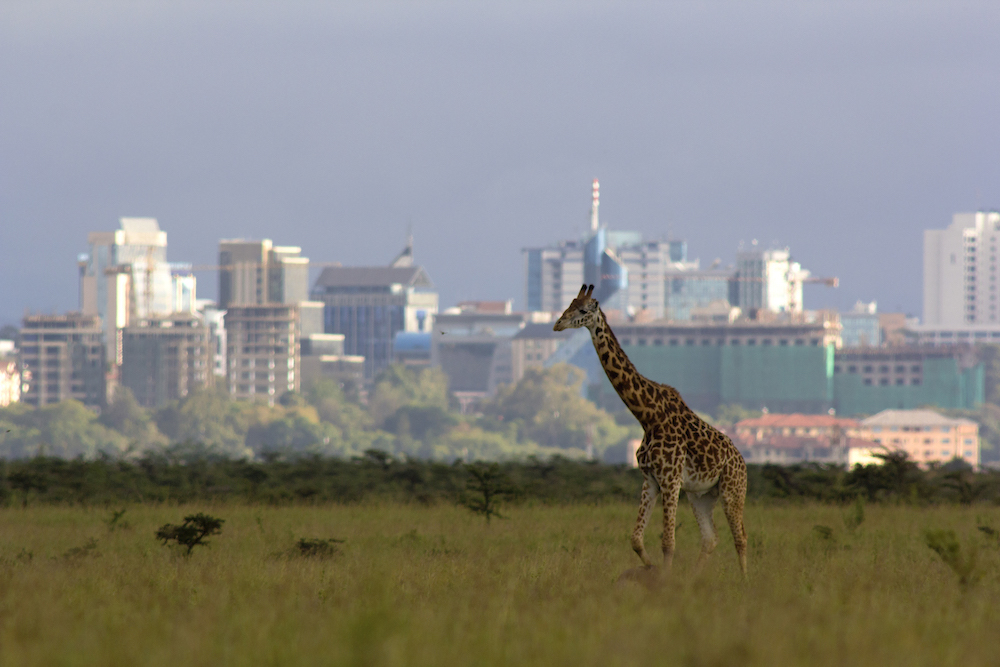- Actis is finding profits developing a green shopping mall and bringing power to millions in Cameroon, something it’s repeating throughout Africa, Asia and Latin America.
- Actis has invested in renewable energy projects — in countries including Mexico, India, Senegal and South Africa — that provide clean, low-cost power to millions of people.
- Spun off from a U.K. government-funded development body, the firm focuses on energy, real estate, private equity and infrastructure while applying ESG criteria.
Actis is building the first green shopping mall in Cameroon while bringing electricity to millions of the country’s people for the first time — the latest examples of the private equity investor’s impact in emerging economies.
Cameroon might not get as much attention as regional powerhouses such as Nigeria and South Africa, but the country is making impressive progress, in no small part, because of the activities of Actis. Backed by Actis, the Douala Grand Mall, which will be the first certified green mall in central Africa, is nearly complete. Eneo, Cameroon’s national electric utility, has seen the number of connections surge by 75% since Actis took a majority stake in 2014.
“We’ve taken over the electricity concession in Cameroon,” James Magor, director of responsible investment at Actis, told Karma. “In 2014, there were 800,000 connections to the grid and today there are 1.4 million… This is mostly clean energy, with 70% coming from hydroelectricity.”
The project in Douala is one of many malls, offices, data centers and housing projects that Actis has backed in Africa, Asia and Latin America. They range from a logistics center in Incheon, South Korea to a shopping center in Abuja, Nigeria that’s topped by solar panels.
“Our buildings integrate high-quality design principles,” Magor said. “We like to show sustainability leadership in our real estate projects.”
Actis also invests in the healthcare, electronic banking, and food processing sectors. They might not share obvious similarities, other than being sited in Africa, Asia and Latin America, but they are all evaluated for sustainability — part of the firm’s pledge to seek investment opportunities that create long-term, sustainable value.
Expanding renewable energy in many emerging economies, however, is an Actis priority. Some projects have already been snatched up by competitors, providing additional funds for new investments.
Its sale of Brazil’s Atlantic Energias Renovaveis in 2019 was named “Private Equity Deal of the Year” by LatinFinance for earning what the website said was six to seven times its initial investment for the wind power company.
Actis committed $280 million to start Ostro Energy in 2014 in India with the goal of producing 1,000 megawatts of wind and solar power by 2019. Ostro was purchased by ReNew Power for a reported $1.54 billion in 2018 as it was approaching its generating target.
In the case of Ostro, “we were able to build over a gigawatt of clean energy in under four years from scratch,” Magor said. “We implemented world-class governance. We had a rigorous and systematic focus on safety and working conditions. And we achieved our goal of improving the lives of people living near our projects. This ultimately drove value at exit.”
Senegal had some of the highest electricity prices in the world because of its dependence on imported fossil fuels until Actis took the lead in developing a 158-megawatt wind farm in the country. The wind power is about one-third the price of the polluting energy and offset about 6 million tons of carbon emissions, according to Magor.
South Africa has been plagued by blackouts as demand has outpaced supply. Most of the country’s electricity comes from coal, but Actis has taken the lead in remedying the power shortage by investing in renewables.
“We’ve been responsible for 20% of renewable power in South Africa,” Magor said. “There’s a huge need for renewable energy there and the sun is hot and winds are swift, creating capacity factors for solar/wind assets, which can be two times that of European assets, for example.”
While wind and solar power projects backed by Actis prosper in Chile, Brazil, Costa Rica and other Latin American countries, it’s not been smooth sailing everywhere in the Western Hemisphere. Mexico cited COVID-19 when it issued a policy change that aims to reduce the use of renewable energy in May.
“In any market, you are going to see short-term difficulties,” Magor said. “Solar and wind are now the cheapest technology across more than two-thirds of the world, PV cell prices have fallen 90% in the last 15 years. These fundamentals aren’t changing.”
Actis has raised $2.9 billion of the $4 billion goal it has set for its latest renewable-energy fund for emerging markets, S&P reported this month.
ESG criteria are “core to our investment policy,” Magor said. “Instead of having a separate impact fund, we intentionally target measurable positive impact across all of our investments.”






















